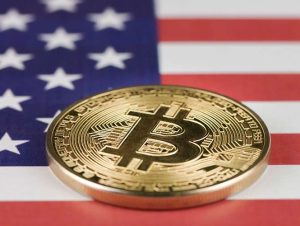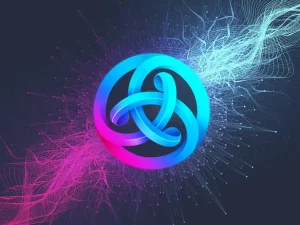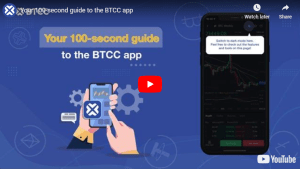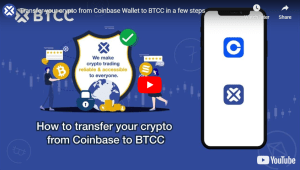Curve (CRV) Crypto Price Prediction 2025–2030: Will Curve DAO Token Recover?
Curve DAO Token (CRV) powers Curve Finance, one of the most influential decentralized finance (DeFi) platforms. Specializing in stablecoin swaps with low slippage and high liquidity, Curve has become a cornerstone in DeFi infrastructure.
Since its launch in 2020, CRV has experienced dramatic price swings. From its peak above $6 during the 2021 bull run to lows under $1 in the 2022–2023 bear market, CRV investors have seen both huge potential and serious risks. This makes Curve crypto price prediction a hot topic among traders, analysts, and long-term crypto believers.
In this guide, we’ll analyze CRV’s past performance, fundamentals, technical charts, tokenomics, expert opinions, and forecast scenarios for 2025, 2030, and beyond.
Table of Contents
- What Is Curve DAO Token (CRV)?
- Historical Performance of Curve (CRV)
- Factors Influencing CRV Price Prediction
- Technical Analysis of CRV
- Tokenomics: Supply, Inflation, and veCRV
- Is Curve (CRV) a Good Investment?
- Curve vs Competitors
- Expert Opinions
- FAQs
- Conclusion
- How to Trade Crypto on BTCC?
- BTCC FAQs
What Is Curve DAO Token (CRV)?
The Role of Curve Finance
Curve Finance is a decentralized exchange (DEX) built on Ethereum, designed to make stablecoin trading more efficient. Unlike traditional crypto exchanges that focus on volatility-driven tokens like BTC or ETH, Curve emphasizes:
-
Stablecoins & Wrapped Assets (USDC, USDT, DAI, WBTC, etc.)
-
Liquidity Pools optimized for low fees and minimal slippage
-
DeFi Integrations with projects like Yearn Finance, Aave, and Convex
Its design makes Curve essential in the DeFi ecosystem, acting as a backbone for stable liquidity.
The Utility of CRV Token
The CRV token is more than just a speculative asset. It powers governance and incentivizes liquidity:
-
Governance: CRV holders vote on protocol upgrades and pool rewards.
-
Liquidity Incentives: Providers earn CRV for supplying liquidity.
-
veCRV Mechanism: Locking CRV (vote-escrowed CRV) grants higher governance power and boosts rewards.
This lock-up model encourages long-term alignment but also affects circulating supply.
/ You can claim a welcome reward of up to 10,055 USDT🎁\
Historical Performance of Curve (CRV)
CRV’s journey shows the volatility of DeFi tokens:
| Year | Price Range | Key Events |
|---|---|---|
| 2020 | $3–$14 (initial volatility) | Token launch, heavy inflation pressures |
| 2021 | $0.50–$6.30 | DeFi boom, stablecoin adoption surge |
| 2022 | $0.40–$3.00 | Bear market, liquidity concerns |
| 2023 | $0.40–$1.20 | DeFi stabilizes, but volumes down |
| 2024 | $0.70–$2.00 | Recovery attempts, DeFi 2.0 narratives |
This history highlights CRV’s boom-and-bust cycles, heavily tied to overall DeFi health.
Factors Influencing CRV Price Prediction
Forecasting CRV requires examining multiple elements:
1. DeFi Market Growth
CRV demand rises with overall DeFi adoption. Stablecoin volume growth directly boosts Curve usage.
2. Competition
CRV faces rivals like Uniswap, Balancer, and DEX aggregators. Curve’s niche is stable liquidity, but competitors are innovating fast.
3. Tokenomics & Inflation
CRV has high supply inflation due to emissions. While veCRV locking reduces circulating supply, inflation pressures price.
4. Regulatory Climate
Global rules on stablecoins and DeFi could significantly impact Curve. Supportive regulation may boost adoption, while strict laws could limit it.
5. Market Sentiment
CRV price mirrors broader crypto cycles. In bull markets, governance tokens tend to outperform, while in bear markets, they underperform.
Curve Crypto Price Prediction 2025
By 2025, CRV’s performance will depend on DeFi recovery and regulation.
-
Bullish Scenario: If DeFi grows strongly, CRV could reach $3–$5.
-
Neutral Scenario: With moderate growth, CRV may trade around $1.50–$2.50.
-
Bearish Scenario: If adoption stagnates, CRV might drop below $1.
Analyst Consensus: Most projections place CRV between $2–$4 by 2025.
Curve DAO Token Price Prediction 2030
The long-term outlook (2030) depends on whether Curve can maintain relevance in DeFi.
-
Bullish Case: Widespread DeFi and stablecoin usage pushes CRV to $7–$10.
-
Neutral Case: Sustainable growth keeps CRV around $3–$5.
-
Bearish Case: If Curve loses dominance, CRV may stay under $2.
This range reflects uncertainty in long-term DeFi adoption.
/ You can claim a welcome reward of up to 10,055 USDT🎁\
Technical Analysis of CRV
Current Price Trends
-
Support levels: $0.80, $1.00
-
Resistance levels: $1.50, $2.50
-
Indicators to watch: RSI, 50-day and 200-day moving averages
Short-Term Outlook
If CRV holds above $1, momentum could push toward $2+. A breakdown risks a retest of $0.70.
Tokenomics: Supply, Inflation, and veCRV
CRV’s tokenomics significantly affect price forecasts:
-
Supply Inflation: CRV emissions reward liquidity providers but dilute holders.
-
veCRV Locking: Encourages long-term commitment, reducing circulating supply.
-
Governance Power: Locked CRV (veCRV) influences how rewards are distributed.
This creates a tug-of-war between inflation (bearish) and lock-ups (bullish).
Is Curve (CRV) a Good Investment?
Pros
-
Strong role in DeFi stablecoin infrastructure
-
Governance utility with veCRV
-
Deep integration with major protocols
Cons
-
High inflation pressures
-
Dependence on stablecoin adoption
-
Competition from rival DEXs
Verdict: CRV has strategic importance in DeFi, but investors must manage expectations.
/ You can claim a welcome reward of up to 10,055 USDT🎁\
Curve vs Competitors
| Feature | Curve | Uniswap | Balancer |
|---|---|---|---|
| Focus | Stablecoins | All tokens | Flexible pools |
| Fees | Low | Variable | Moderate |
| Governance | CRV / veCRV | UNI | BAL |
| Strength | Efficient swaps | Broad adoption | Pool design |
Curve’s specialization gives it an edge in stable liquidity, but diversification is limited.
Expert Opinions
-
Optimists: CRV will rebound with DeFi 2.0, targeting $5–$10.
-
Realists: Inflation limits growth, expecting $2–$4.
-
Skeptics: CRV may not regain past highs without innovation.
Long-Term Outlook 2025–2035
Bullish Path
CRV grows as DeFi becomes mainstream, hitting double-digit valuations.
Neutral Path
CRV remains relevant but capped at $3–$5.
Bearish Path
DeFi stagnates, leaving CRV stuck under $1.
FAQs
Q1: What is Curve DAO Token used for?
Governance, liquidity incentives, and reward boosting.
Q2: Can CRV reach $10?
Yes, in a bullish DeFi scenario, though not guaranteed.
Q3: Is CRV inflation a problem?
Yes, emissions dilute price, but veCRV lock-ups offset this.
Q4: How do analysts predict CRV prices?
Through technical analysis, adoption metrics, and DeFi trends.
Q5: Is Curve better than Uniswap?
Curve is better for stablecoins; Uniswap is broader.
Conclusion
Curve DAO Token (CRV) remains a key pillar of DeFi, powering one of the most efficient stablecoin platforms. Its price future hinges on:
-
Global stablecoin adoption
-
DeFi regulation
-
Competition
-
Tokenomics balance
2025 Forecast: $1.50–$5
2030 Forecast: $2–$10
CRV carries both opportunity and risk, making it suitable for investors who believe in DeFi’s long-term growth.
For more detailed market analysis, strategies, and educational resources, visit BTCC Academy and stay ahead of the curve in the rapidly evolving crypto space.
How to Trade Crypto on BTCC?
This brief instruction will assist you in registering for and trading on the BTCC exchange.
Step 1: Register an account
The first step is to hit the “Sign Up” button on the BTCC website or app. Your email address and a strong password are all you need. After completing that, look for a verification email in your inbox. To activate your account, click the link in the email.

Step 2: Finish the KYC
The Know Your Customer (KYC) procedure is the next step after your account is operational. The main goal of this stage is to maintain compliance and security. You must upload identification, such as a passport or driver’s license. You’ll receive a confirmation email as soon as your documents are validated, so don’t worry—it’s a quick process.

Step 3. Deposit Funds
After that, adding money to your account is simple. BTCC provides a range of payment options, such as credit cards and bank transfers. To get your money into your trading account, simply choose what works best for you, enter the amount, and then follow the instructions.
- Fiat Deposit. Buy USDT using Visa/Mastercard (KYC required).
- Crypto Deposit. Transfer crypto from another platform or wallet.

Step 4. Start Trading
If you wish to follow profitable traders, you might go for copy trading, futures, or spot trading. After choosing your order type and the cryptocurrency you wish to trade, press the buy or sell button. Managing your portfolio and keeping track of your trades is made simple by the user-friendly interface.

Look more for details: How to Trade Crypto Futures Contracts on BTCC
BTCC FAQs
Is BTCC safe?
Based on its track record since 2011, BTCC has established itself as a secure cryptocurrency exchange. There have been no reports of fraudulent activity involving user accounts or the platform’s infrastructure. By enforcing mandatory know-your-customer (KYC) and anti-money laundering (AML) procedures, the cryptocurrency trading platform gives consumers greater security. For operations like withdrawals, it also provides extra security features like two-factor authentication (2FA).
Is KYC Necessary for BTCC?
Indeed. Before using BTCC goods, users must finish the Know Your Customer (KYC) process. A facial recognition scan and legitimate identification documents must be submitted for this process. Usually, it is finished in a few minutes. This procedure has the benefit of strengthening the security of the exchange and satisfying legal requirements.
Because their accounts will have a lower daily withdrawal limit, those who do not finish their KYC are unable to make deposits. It should be noted that those who present a legitimate ID without a facial recognition scan will likewise have restricted withdrawal options.
Is There a Mobile App for BTCC?
Indeed. For users of iOS and Android, BTCC has a mobile app. The exchange’s website offers the mobile app for download. Since both the web version and the mobile app have the same features and capabilities, they are comparable.
Will I Have to Pay BTCC Trading Fees?
Indeed. BTCC levies a fee for trade, just like a lot of other centralised exchanges. Each user’s VIP level, which is unlocked according to their available money, determines the different costs. The BTCC website provides information on the charge rates.
Can I Access BTCC From the U.S?
You can, indeed. According to its website, BTCC has obtained a crypto license from the US Financial Crimes Enforcement Network (FinCEN), which enables the cryptocurrency exchange to provide its services to investors who are headquartered in the US.
According to BTCC’s User Agreement document, its goods are not allowed to be used in nations and organisations that have been sanctioned by the United States or other nations where it has a licence.
BTCC Guide:
- How to Trade Crypto Futures Contracts on BTCC
- BTCC Guide-How to Deposit Crypto on BTCC?
- What is Crypto Futures Trading – Beginner’s Guide
- What is Leverage in Cryptocurrency? How Can I Trade at 100X Leverage?
- BTCC Review 2024: Best Crypto Futures Exchange
Crypto Buying Guides:
- How To Buy Bitcoin (BTC)
- How To Buy Picoin
- How To Buy Ethereum (ETH)
- How To Buy Dogecoin (DOGE)
- How To Buy Pepe Coin (PEPE)
- How To Buy Ripple (XRP)
Crypto Prediction:
- Ethereum (ETH) Price Prediction 2025,2026, 2030 — Will ETH Reach $10,000?
- Ethereum Price Prediction 2025, 2026,2030: How High Can ETH Go in 2024?
- Bitcoin (BTC) Price Prediction 2025, 2026,2030 — Is BTC a Good Investment?
- Ripple (XRP) Price Prediction 2025, 2026,2030 — Will XRP Reach $1 After SEC Lawsuit?
- Pi Coin Price Prediction 2025,2026,2030 — Is Pi Coin a Good Buy?
- Pepe (PEPE) Price Prediction 2025, 2026,2030 – Will PEPE Reach $1
Please be aware that all investments involve risk, including the potential loss of part or all of your invested capital. Past performance is not indicative of future results. You should ensure that you fully understand the risks involved and consider seeking independent professional advice suited to your individual circumstances before making any decision.
For any inquiries or feedback regarding this article, please contact us at: [email protected]












